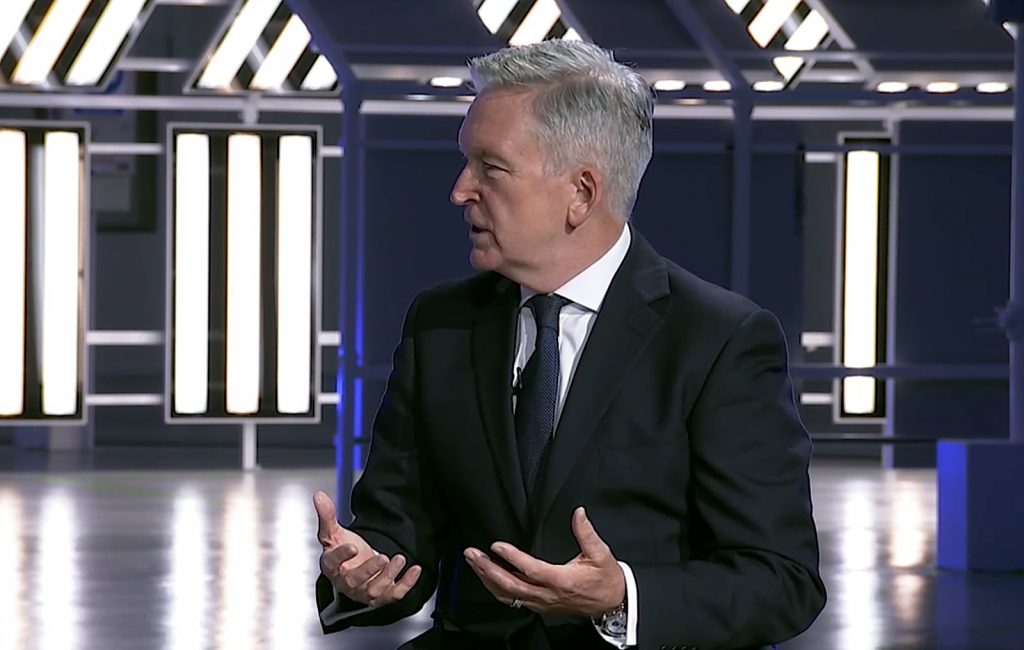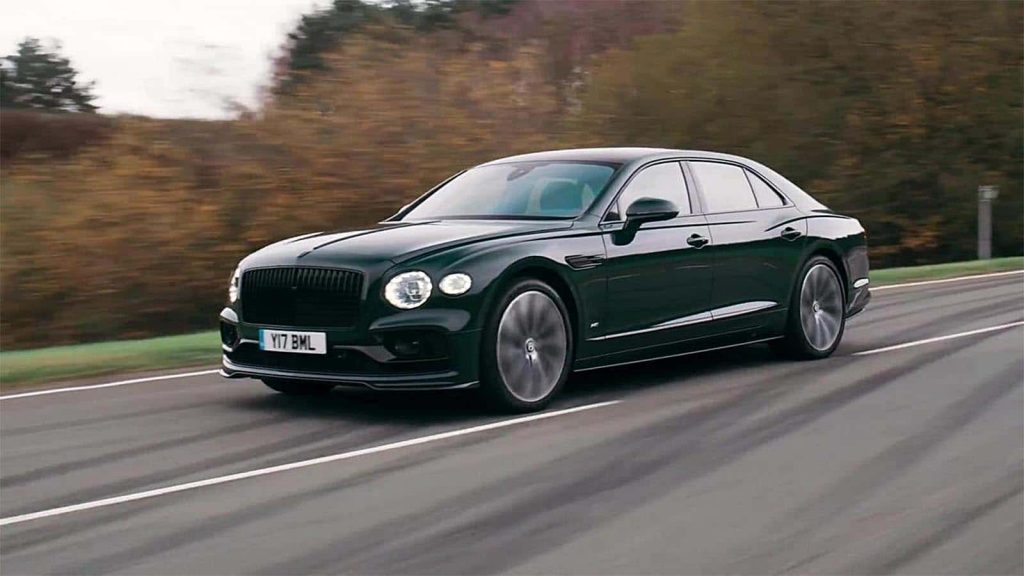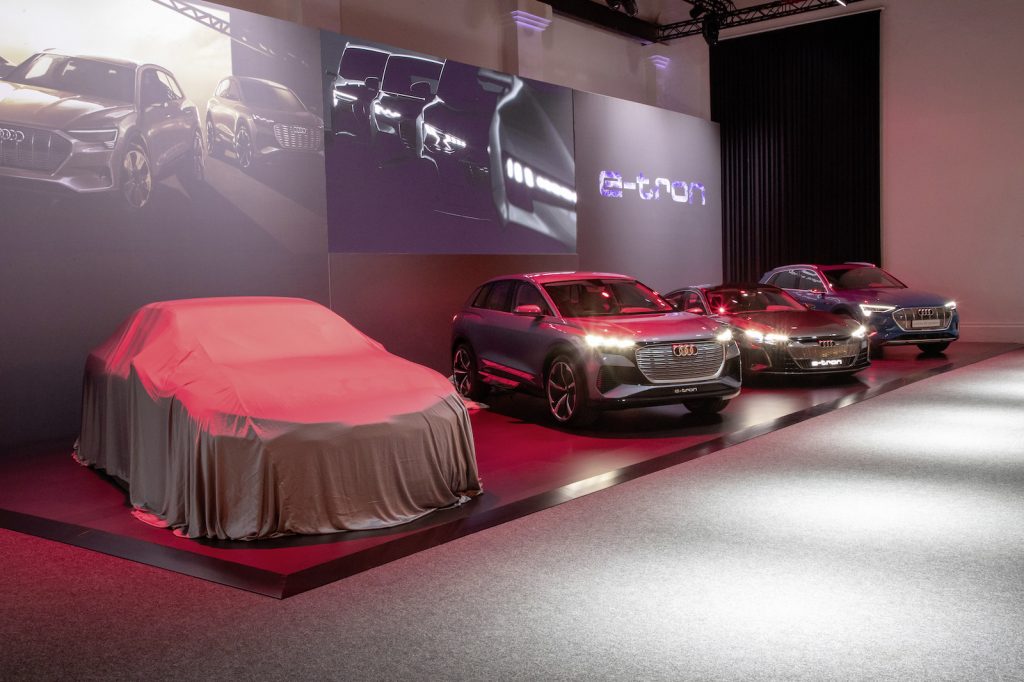With a plan to go all-electric by 2030, Bentley intends to begin the transition away from gas and diesel with the launch of a battery-powered SUV in 2025.

The British super-luxury brand will have some help getting there, reports Britain’s Car Magazine, turning to Audi, another member of the Volkswagen Group investing heavily in battery-electric vehicles. The Bentley battery-electric vehicle, it appears, will be based on the same underlying architecture as some upcoming Audi products, a platform known internally as “Project Artemis.”
The decision to go with a two-box design should be no surprise, considering current market realities, Bentley CEO Adrian Hallmark told Car, adding, “If you’re not in SUVs, you’re nowhere.”
The marque’s first utility vehicle, the big Bentayga, has become its best-selling product line by a wide margin. It also is set to get a plug-in hybrid option within the next year or two, following the launch of a PHEV version of the Flying Spur sedan.
Future plans
In a surprise move, Bentley announced last November that it will begin phasing out internal combustion engines. By 2026, CEO Hallmark said, it will offer only plug-based models, including PHEVs and BEVs. By 2030, plug-in hybrids also will be abandoned.

“By 2030, no more combustion engines,” said Hallmark during a November 2020 media backgrounder. “The future of Bentley will be fully electric,” he said, adding that, “We are not only working on one electric car but a full family of electric cars.”
Getting there won’t be easy, however. Despite the fact the typical Bentley carries a sticker price in excess of $200,000, the cost of developing plug-based drivetrains — and the platforms needed for them — would run into the billions if Bentley were to go it alone.
Luckily for the British brand, it doesn’t have to. Parent Volkswagen has committed $85 billion to electrify its various brands. Though Bentley is the first to set a hard date for phasing out gas and diesel technology, Audi appears to be moving rapidly in that direction, as well. It’s first BEV, the e-tron, launched nearly two years ago and it has revealed several others since then, including the e-tron GT.
Volkswagen Group’s input into electrification
As the VW Group focuses in on the architectures that will anchor its various products, most Audi models will utilize the Artemis design. Like the MEB platform underlying the new Volkswagen ID.4, Artemis adopts a skateboard-style layout, its batteries and motors under the load floor. But the Audi architecture is more flexible and offers more features, such as torque vectoring. It is geared more towards high-end products that would eventually replace the likes of an A6 or A8 sedan or Q5 SUV – or, in Bentley’s case, products like the Continental line.

With the plug-in hybrids it’s bringing out, Bentley had to make compromises. The underlying platforms used in the Continental family — which includes the Flying Spur — as well as the Bentayga SUV, weren’t really designed to go plug-in. Battery packs for plug-in hybrid versions have to be shoehorned in, leading to compromises in terms of space, weight balance and other issues.
“The difference now is that with Artemis we’re right in there at the beginning,” said Hallmark, “helping define it. We’re not leading it, but we’re going to be a beneficiary of it.”
Project Artemis
Audi will migrate away from its current platforms over the next several years, but Artemis won’t be ready until 2024. And Bentley’s first BEV is set to follow a year later, according to the report.
“Looking forward to electrification, we’re going to have closer synergies with Audi,” Hallmark said in his interview with Car. “But we will continue to have strong relationships with both brands [Audi and Porsche], and we see this as an opportunity, not a risk. No question – we are electrifying. And we need to find the best way to fast-track that, and to lead the technology charge.”
Not that long ago, ultra-luxury brands like Bentley and Rolls-Royce appeared reluctant to electrify. But they are facing very real challenges in the face of tightening global emissions and fuel economy standards. Both know that their home British market will outlaw all but plug-based models by 2030, with only BEVs to be sold on the British Isles come 2035.
But the good news is that buyers already appear to be shifting in their own mindset. According to Hallmark, fully 39% of current Bentley owners say they want to buy a BEV the next time they’re in the market.
For GREAT deals on a new or used Hyundai check out Hyundai of Escondido TODAY!